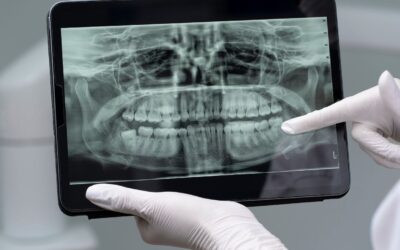Dental crowns are one of the most common dental treatments used to restore damaged or decayed teeth. However, if you’re considering a crown, you may be wondering, how much do dental crowns cost? The cost of dental crowns can vary depending on several factors, including the type of crown you choose, the materials used, the dentist’s experience, and even your location. Understanding the costs involved can help you make an informed decision about whether dental crowns are the right choice for you.
In this article, we will break down everything you need to know about the cost of dental crowns, covering types of crowns, factors that influence prices, and how to manage the cost with dental insurance or payment plans. Whether you’re looking for a quick answer or a detailed analysis, we’ve got you covered!
What is a Dental Crown?
A dental crown is a cap that covers a damaged or decayed tooth, restoring its shape, size, strength, and appearance. Crowns are often used when a tooth is too damaged to be repaired with a filling. They can be made from different materials, such as porcelain, metal, or a combination of both. Dental crowns are commonly used after root canal treatments, for cosmetic purposes, or to protect a weakened tooth.
How Much Do Dental Crowns Cost?
The cost of dental crowns can range from $800 to $2,500 or more per tooth. The price varies depending on the type of crown, your location, and your dentist’s pricing structure. Here’s a quick breakdown:
-
Porcelain Crowns: $1,000 – $2,500
-
Porcelain-fused-to-metal Crowns: $800 – $1,500
-
Metal Crowns: $800 – $1,500
-
Resin Crowns: $800 – $1,000
In addition to the cost of the crown itself, you may also need to consider additional costs for consultations, X-rays, and any other preliminary work that might be necessary.
Factors That Influence the Cost of Dental Crowns
When asking, how much do dental crowns cost, it’s essential to consider the factors that can impact the pricing. Below are the key aspects that influence the cost of dental crowns:
-
Location: The cost of dental care can vary widely by geographic location. Major cities often have higher dental fees than smaller towns or rural areas.
-
Dentist’s Experience: A highly experienced dentist may charge more for their services, but they could also provide higher-quality results.
-
Material Type: Porcelain crowns are typically more expensive than metal crowns, but they offer better aesthetics and can be a good choice for visible teeth.
-
Complexity of the Procedure: If your tooth requires additional work, such as a root canal or extraction before placing the crown, the cost will increase.
Types of Dental Crowns and Their Costs
Different types of crowns offer varying benefits and costs. Below, we explore the most common options:
Porcelain Crowns
Porcelain crowns provide a natural look, making them an ideal choice for front teeth. They can cost between $1,000 to $2,500. These crowns are durable but may not last as long as metal crowns.
Porcelain-Fused-to-Metal Crowns
These crowns combine the aesthetic benefits of porcelain with the strength of metal. They typically cost between $800 to $1,500 and are suitable for both front and back teeth.
Metal Crowns
Metal crowns are made from alloys and are more durable than porcelain options. They are usually priced between $800 and $1,500. Metal crowns are typically recommended for molars due to their strength and durability.
Resin Crowns
Resin crowns are made from a tooth-colored plastic material, making them more affordable than other types of crowns. They generally range from $800 to $1,000 but may wear down faster than porcelain or metal crowns.
Insurance Coverage and Payment Plans for Dental Crowns
Many dental insurance plans cover part of the cost of dental crowns, but the amount they cover can vary. Typically, dental insurance may cover 50% to 80% of the cost, depending on your plan. Be sure to verify the specifics of your coverage before undergoing the procedure.
If you don’t have dental insurance, or if your plan doesn’t cover crowns, many dentists offer payment plans or financing options. Some even offer discounts for paying upfront or using certain forms of payment. It’s always a good idea to discuss payment options with your dentist beforehand.
How to Save Money on Dental Crowns
Dental crowns can be expensive, but there are a few ways to reduce the overall cost:
-
Shop Around: Different dentists may offer different prices for the same treatment. Don’t hesitate to get multiple quotes before committing.
-
Dental Schools: Many dental schools offer crown procedures at a lower cost, as students perform the work under the supervision of experienced professionals.
-
Insurance and Payment Plans: Be sure to explore insurance options and payment plans that can help you manage the cost of dental crowns.
Frequently Asked Questions (FAQs)
What factors affect the cost of dental crowns?
Location, type of crown, dentist’s experience, and the complexity of the procedure all influence the price of dental crowns.
Are dental crowns covered by insurance?
Yes, many insurance plans cover a portion of the cost of dental crowns, but coverage amounts vary depending on the plan.
How long do dental crowns last?
Depending on the material used, dental crowns can last anywhere from 5 to 15 years with proper care.
What’s the cheapest type of dental crown?
Resin crowns tend to be the least expensive, but they may not be as durable as porcelain or metal options.
Can dental schools provide cheaper dental crowns?
Yes, dental schools often offer treatments at reduced rates, as students perform the procedures under supervision.
Wrap It Up
Understanding the cost of dental crowns is essential for making an informed decision about your dental health. While the cost can vary depending on several factors, it’s crucial to consider the type of crown, the complexity of the procedure, and potential insurance coverage. By doing your research and planning ahead, you can ensure that you receive the best value for your dental treatment.



